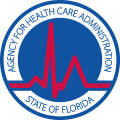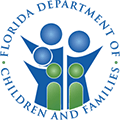Schizophrenia is a serious mental illness that can impact the manner in which a person thinks and acts. Two of the defining symptoms of schizophrenia are psychosis and disorganization. Psychosis is an umbrella term that mental health experts use when there is a difference between reality and a person’s experience of reality. There are two types of psychosis: hallucinations and delusions. Hallucinations are experiences of sensory input without any actual external stimuli. One common hallucination a person with schizophrenia may experience is hearing voices, and these voices can range from simply presenting a running commentary on a person’s life to telling the person to do something to harm himself or someone else. Other types of hallucinations, such as visual, olfactory (smell), gustatory (taste), or tactile (touch) can also occur.
Delusions are the other type of psychosis. Delusions are beliefs, often with an unusual or magical quality, that a person holds regardless of significant evidence to the contrary. There are a number of common types of delusions. Delusions of persecution are the most common type, and they involve a fear that someone or something is trying to harm the person with the delusion. Other common delusions include referential delusions (beliefs that everyday events, such as a traffic light changing, are specifically directed at the person), grandiose delusions (belief that one is famous or has extraordinary abilities), and erotomanic delusions (false belief another person is in love with the individual).
Psychosis, in the form of hallucinations and delusions, is one of the hallmark symptoms of schizophrenia. The other major symptom is disorganization. People with schizophrenia have trouble organizing their thoughts, and their difficulties with thought organization often manifest in their speech. These difficulties can range from having trouble staying on track in a conversation to speaking in seemingly unrelated jumbles of words. This disorganization can also include movement. Disorganized movement can manifest as childlike silliness or agitation, and in extreme cases can manifest as catatonia. People who exhibit catatonia will often become almost completely unreactive to the environment and may hold certain body positions for hours on end.
Schizophrenia can have a severe effect on a sufferer’s life, and often people with schizophrenia will turn to substances in an attempt to cope. While there is no cure for schizophrenia, effective treatment is available and can help sufferers of this mental health condition achieve happier and healthier lives.
Statistics
In a given year, approximately one percent of American adults are diagnosed with schizophrenia and about sixty percent of those diagnosed are receiving treatment. Men and women from all ethnic groups show similar rates of schizophrenia worldwide. People who have schizophrenia are more likely than others to have substance abuse problems, of which can often make schizophrenia symptoms worse.
Causes and Risk Factors for Schizophrenia
Schizophrenia is likely caused by an interaction of both genetic and environmental factors. Consider the following explanations for how and why a person can come to suffer from this mental illness:
Genetic: Schizophrenia has a strong link to genetics. Approximately one percent of people are diagnosed with schizophrenia, but that number increases to ten percent among those with a close relative who has the disorder. As discovered via twin studies, if one identical twin has schizophrenia, the other twin has between a 40 and 65% chance of developing the disorder as well. Experts have not identified a single gene linked directly to schizophrenia; yet, experts have found hundreds of genes that may contribute to someone developing schizophrenia.
Environmental: Researchers suggest environmental factors also contribute to a person’s chance of developing schizophrenia. Possible environmental influences include exposure to viruses, inflammation, autoimmune diseases, or maternal malnutrition before birth as well as complications experienced during the birthing process.
Risk Factors:
- Family history of schizophrenia or psychosis
- Prenatal exposure to viruses, inflammation, autoimmune diseases, or maternal malnutrition
- Birth complications
- Personal history of abusing substances, especially marijuana
Signs and Symptoms of Schizophrenia
The symptoms of schizophrenia are typically divided into positive, negative, and cognitive symptoms. Positive symptoms indicate the presence of something above and beyond what someone without schizophrenia experiences, such as the presence of hallucinations or delusions. Negative symptoms indicate the absence of something, such as the absence of motivation (known as avolition). Cognitive symptoms are symptoms that impact the sufferer’s ability to think clearly and make decisions.
Listed below are the symptoms of schizophrenia, divided by the aforementioned types of symptoms:
Positive symptoms:
- Hallucinations
- Delusions
- Disorganization
Negative symptoms:
- Reduced emotional expression
- Little to no motivation
- Dull, disconnected speech
- Decreased pleasure from pleasurable activities
- Diminished speech
- Lack of social interaction
Cognitive symptoms:
- Disorganized thinking
- Poor judgment and decision-making
- Lack of insight about disorder
- Difficulty with concentration
- Poor memory
Effects of Schizophrenia
Schizophrenia can be a profoundly debilitating disorder, especially if left untreated. The effects of the disorder can include:
- Relational and family difficulties
- Loss of job
- Homelessness
- Divorce
- Financial problems
- Addictive behaviors and substance use
- Suicidal ideation and attempts
- Involuntary hospitalization
Co-Occurring Disorders
The following disorders are among the most common that occur alongside a diagnosis of schizophrenia:
- Substance use disorders
- Depressive disorders
- Obsessive-compulsive disorder (OCD)
- Anxiety disorders
- Posttraumatic stress disorder (PTSD)












